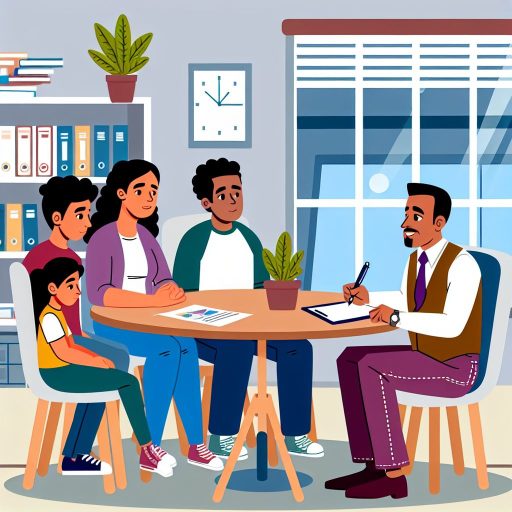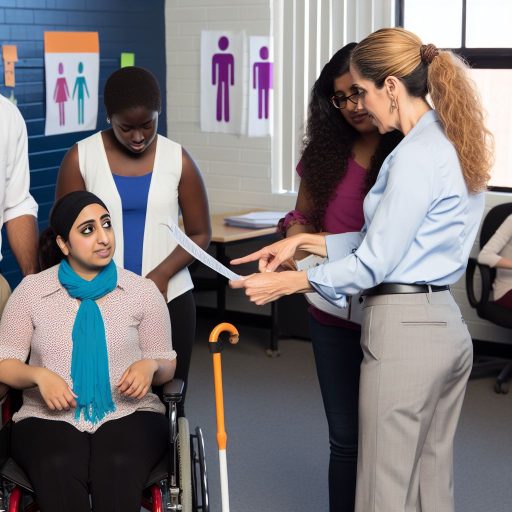Introduction:
A gerontologist is a professional who studies aging and its effects on individuals.
Understanding their role is crucial for addressing the needs of the elderly population.
What is Gerontology?
Gerontology is the study of aging and the elderly population.
It focuses on the social, psychological, and biological aspects of aging.
Gerontology is an interdisciplinary field that combines various disciplines such as psychology, sociology, biology, and social work.
Overview of the Field of Gerontology
Gerontology is a growing field with the increase in the elderly population.
It involves research, education, and practical applications to address the needs of older adults.
Gerontologists work in a variety of settings such as healthcare facilities, community organizations, and government agencies.
Importance of Gerontology in Society
Gerontology plays a crucial role in understanding the challenges and opportunities of an aging population.
It helps in developing policies and programs to improve the quality of life for older adults.
Gerontology also helps in promoting healthy aging and addressing age-related issues such as chronic diseases and cognitive decline.
Responsibilities of a Gerontologist
Gerontology is a multidisciplinary field that specializes in the study of aging and the care of older adults.
A gerontologist plays a critical role in addressing the unique needs and challenges faced by the elderly population.
Here are some of the key responsibilities of a gerontologist:
Conducting assessments of older adults
- Evaluate physical, cognitive, and emotional functioning
- Assess the social support systems available to the individual
- Determine the specific needs and preferences of the elderly person
- Identify any potential risks or concerns that may affect their well-being
By conducting thorough assessments, gerontologists can gain a comprehensive understanding of an older adult’s overall health and quality of life.
Developing treatment plans for age-related issues
- Create personalized care plans based on assessment findings
- Collaborate with healthcare providers to address medical needs
- Recommend lifestyle modifications to improve health outcomes
- Implement interventions to manage chronic conditions effectively
Gerontologists work closely with older adults to develop tailored treatment strategies that promote optimal health and well-being in later life.
Providing support and counseling to elderly individuals
- Offer emotional support and empathy to older adults
- Assist in coping with life transitions and losses
- Facilitate discussions on end-of-life planning and goals
- Provide guidance on accessing community resources and services
Through counseling and support services, gerontologists help older adults navigate the complexities of aging and maintain a sense of independence and dignity.
The role of a gerontologist is multifaceted and encompasses various aspects of geriatric care.
By conducting assessments, developing treatment plans, and providing support to elderly individuals, gerontologists contribute significantly to enhancing the quality of life for older adults.
See Related Content: Victim Advocate Salary and Job Outlook
Transform Your Career Today
Unlock a personalized career strategy that drives real results. Get tailored advice and a roadmap designed just for you.
Start NowSpecializations in Gerontology
Gerontology is a broad field that encompasses the study of aging and the unique needs of older adults.
Different areas of specialization within gerontology
- Health and wellness: Focuses on promoting physical and mental well-being in older adults.
- Long-term care: Involves working with seniors in nursing homes or assisted living facilities.
- End-of-life care: Provides support and guidance for individuals nearing the end of their lives.
- Policy and advocacy: Advocates for policies that benefit older adults and their families.
- Mental health: Addresses the emotional and psychological needs of aging individuals.
Importance of specializing in a specific area
Specializing in a specific area within gerontology allows professionals to develop expertise in a particular aspect of aging.
This ensures that they can provide the highest quality care and support to older adults.
By focusing their efforts on a specific area, gerontologists can tailor their services to meet the unique needs of their clients.
Furthermore, specialized knowledge allows gerontologists to stay up-to-date on the latest research, trends, and best practices within their chosen field.
This enables them to offer cutting-edge solutions and interventions that can significantly improve the quality of life for older adults.
How specialized knowledge benefits elderly individuals
When gerontologists specialize in a specific area, they are better equipped to address the diverse and complex needs of elderly individuals.
By honing their skills in a particular area, gerontologists can provide targeted and personalized care that is tailored to each individual’s unique circumstances.
For example, a gerontologist specializing in mental health can offer counseling and therapy to older adults struggling with depression or anxiety.
In contrast, a gerontologist specializing in end-of-life care can provide compassionate support and guidance to individuals approaching the end of their lives.
Specialization within gerontology is essential for providing comprehensive, effective, and person-centered care to older adults.
By focusing on a specific area, gerontologists can make a significant impact on the lives of elderly individuals.
This ensures that they receive the support and assistance they need to age with dignity and grace.
See Related Content: Life Skills Instructors: Navigating Cultural Differences
Education and Training Requirements
When it comes to becoming a gerontologist, there are specific educational pathways that individuals need to follow in order to practice in this field.
The role of a gerontologist requires a strong foundation in various disciplines, including psychology, sociology, and biology.
Here are the educational requirements, necessary certifications, and continuing education requirements for gerontologists:
Educational Pathways to Becoming a Gerontologist
- Obtain a Bachelor’s Degree: The first step towards becoming a gerontologist is to earn a Bachelor’s degree in a related field such as psychology, sociology, or gerontology.
- Gain Relevant Experience: It is essential to gain experience working with older adults through internships or volunteer opportunities during your undergraduate studies.
- Pursue a Master’s Degree: Many gerontologists hold a Master’s degree in gerontology or a related field to deepen their knowledge and skills in working with the aging population.
- Consider a Ph.D. or Doctoral Degree: Some gerontologists choose to further their education by pursuing a Ph.D. or doctoral degree in gerontology, which allows them to conduct research and teach in academic settings.
Necessary Certifications and Licenses
- Gerontologist Certification: While certification is not always mandatory, becoming a Certified Gerontologist (CG) through the American Board of Certified Gerontology can enhance your credibility and expertise in the field.
- Licensure: Depending on the state or country where you practice, you may need to obtain a license to work as a gerontologist. This usually involves passing a licensing exam and fulfilling specific requirements.
Continuing Education Requirements for Gerontologists
- Stay Current in the Field: Gerontologists are encouraged to pursue continuing education opportunities to stay up-to-date on the latest research, trends, and best practices in gerontology.
- Attend Conferences and Workshops: Participating in conferences, workshops, and seminars related to gerontology can provide valuable networking opportunities and enhance your professional development.
- Join Professional Organizations: Becoming a member of professional organizations such as the Gerontological Society of America can connect you with other gerontologists and provide access to resources and educational opportunities.
- Pursue Advanced Training: Consider pursuing advanced training or certifications in specialized areas within gerontology, such as dementia care or palliative care, to further expand your expertise.
By investing in your education, obtaining necessary certifications, and pursuing continuing education opportunities, you can develop the skills and knowledge needed to make a positive impact on the lives of older adults.
Learn More: Key Responsibilities of a School Social Worker

Different Career Paths Available in Gerontology
There are various career paths that individuals interested in gerontology can pursue.
Transform Your Career Today
Unlock a personalized career strategy that drives real results. Get tailored advice and a roadmap designed just for you.
Start NowSome of these paths include:
- Geriatric Nurse: Providing direct care and support to elderly patients in hospitals, nursing homes, and other healthcare settings.
- Geriatric Social Worker: Helping older adults navigate social services, financial assistance, and emotional support.
- Gerontological Researcher: Conducting studies on aging-related topics to contribute to the understanding of gerontology.
- Gerontological Counselor: Offering counseling services to older adults to address mental health issues and emotional well-being.
Job Outlook for Gerontologists
The job outlook for gerontologists is promising.
There is an increasing demand for professionals who specialize in aging-related issues.
As the population of older adults continues to grow, there is a need for skilled gerontologists to provide care and support.
According to the Bureau of Labor Statistics, employment of social workers is projected to grow 13% from 2019 to 2029, much faster than the average for all occupations.
Benefits of Pursuing a Career in Gerontology
There are numerous benefits to pursuing a career in gerontology, including:
- Making a Difference: Working with older adults can be incredibly rewarding and make a positive impact on their lives.
- Job Security: With the aging population, there will be a continuous demand for professionals in gerontology.
- Diverse Opportunities: Gerontology offers a variety of career paths, allowing individuals to find a role that aligns with their interests and skills.
- Personal Growth: Working in gerontology can provide opportunities for personal and professional growth, as individuals learn to navigate complex issues related to aging.
Learn More: Health Educator: Roles and Responsibilities Explained
Challenges Faced by Gerontologists
Gerontologists face several challenges in their work with elderly individuals.
These challenges can range from emotional and physical to practical considerations.
It is important for gerontologists to be aware of these challenges and develop strategies to overcome them.
Common challenges faced in working with elderly individuals
- Physical limitations: Many elderly individuals may have mobility issues or chronic health conditions that can make it challenging to provide care.
- Cognitive decline: Some older adults may experience cognitive decline, such as dementia, which can affect communication and decision-making.
- Social isolation: Elderly individuals may experience feelings of loneliness and isolation, especially if they live alone or have limited social connections.
- End-of-life decisions: Gerontologists may need to help elderly individuals and their families navigate difficult end-of-life decisions and care planning.
- Financial concerns: Some elderly individuals may face financial challenges, such as limited income or lack of access to affordable healthcare services.
Strategies for overcoming these challenges
To overcome these challenges, gerontologists can implement the following strategies:
- Developing a comprehensive care plan that addresses the physical, emotional, and social needs of elderly individuals.
- Collaborating with other healthcare professionals, family members, and community organizations to provide holistic care and support.
- Engaging in ongoing education and training to stay current on best practices in gerontology and elder care.
- Advocating for policies and programs that support the well-being and quality of life of elderly individuals.
- Practicing self-care by setting boundaries, seeking support, and engaging in activities that promote mental and emotional well-being.
Importance of self-care for gerontologists
Self-care is essential for gerontologists to prevent burnout and compassion fatigue.
Taking care of their physical, emotional, and mental well-being allows gerontologists to provide better care for their elderly clients.
Some self-care practices that gerontologists can incorporate into their routine include:
- Engaging in regular exercise to stay physically fit and relieve stress.
- Practicing mindfulness and relaxation techniques to manage stress and improve mental well-being.
- Seeking supervision and support from peers and mentors to process challenging situations and emotions.
- Taking regular breaks and vacations to recharge and prevent burnout.
- Setting boundaries with clients and colleagues to maintain a healthy work-life balance.
By prioritizing self-care and implementing strategies to overcome challenges, gerontologists can continue to provide high-quality care and support for elderly individuals while maintaining their own well-being.
Importance of Gerontologists in Aging Population
Gerontologists play a crucial role in our society by specializing in the unique needs of elderly individuals.
They conduct research, provide guidance on aging-related issues, and contribute valuable insights to improve the quality of life for seniors.
Gerontologists have a deep understanding of the physical, psychological, and social aspects of aging.
Transform Your Career Today
Unlock a personalized career strategy that drives real results. Get tailored advice and a roadmap designed just for you.
Start NowTheir expertise helps address challenges faced by older adults and promotes healthy aging practices.
Recognizing and appreciating the role of gerontologists is essential for creating age-friendly communities.
Furthermore, their work supports the well-being of our aging population.
By seeking their expertise and implementing their recommendations, we can ensure that seniors receive the care and support they deserve.
Gerontologists are indispensable professionals who contribute to the development of policies, programs, and services that benefit older adults.
Their dedication to enhancing the quality of life for seniors deserves our respect and recognition.
Additional Resources
Training For Geriatric Social Workers | American Geriatrics Society
Family Caregiving Roles and Impacts – Families Caring for an Aging …
[E-Books for Sale]
The Big Book of 500 High-Paying Jobs in America: Unlock Your Earning Potential
$19.99 • 500 High-Paying Jobs • 330 pages
Explore 500 high-paying jobs in America and learn how to boost your career, earn more, and achieve success!
See All 500 High-Paying Jobs of this E-Book
1001 Professions Without a Degree: High-Paying American Jobs You Can Start Now
$19.99 • 1001 Professions Without a Degree • 174 pages
Discover 1001 high-paying jobs without a degree! Unlock career tips, skills, and success strategies for just $19.99!




